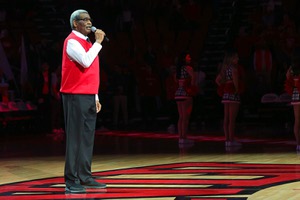We’ve known for too long that the Academy Awards has a decades-long problem with institutionalized whiteness and lack of diversity. Back in 2015, even more attention was brought to these issues when activist April Reign tweeted the hashtag #oscarssowhite, a phrase that became the clarion call for the movement which put pressure on the Academy and filmmakers to nominate and cast more people of color in film. Here in Las Vegas, UNLV’s African American Student Association of Theatre and Film is hoping to continue that dialog on a local level.
Through meetings, plays and readings, AASATF commits to raising positive awareness about minorities and their accomplishments within the theater and in the film industry. The organization just wrapped up its most recent project, Three by Tenn, a production of one-act plays by Tennessee Williams in collaboration with Majestic Theatre, on Sunday.
Production manager Cassidy Bonifacio saw each one act as a unique opportunity to tell the stories of people of color and other marginalized communities. “We try to pick plays that are either written by marginalized groups or that represent issues that marginalized groups face,” Bonifacio says. “We try to not only incorporate but reflect our community on stage—people who look like the people in our community currently. Our community is so diverse, not only through race, but age and sexuality and all that kind of stuff. And we try to represent that onstage as well.”
Based on Tennessee William’s own life, The Parade tells the story of Don, a gay poet who must painfully navigate his feelings for another man in the homophobia-ridden 1940s, while Green Eyes tackles abusive relationships and racism and Why Do You Smoke So Much, Lily? deals with stereotypes about women and mental illness. Each one-act was cast with a person of color as the lead, a detail AASATF considers especially important.
Case in point: Jacob Sidhom, who is both Mexican and Middle Eastern, played the role of Don in The Parade, while Cuban actress Amanda Guardado played the female lead in Green Eyes. “That role would normally be played by a white woman,” Bonifacio says, adding that instead of “colorblind” casting, directors should work to be “color-conscious” and consider how a person’s race, background and history could shape and affect a story for the better.
“We, as young artists of color, need to continue to tell stories no matter what,” Bonifacio says. “The old, white guys in Hollywood aren’t going to do it, so it’s up to us to fight for our stories to be told.”








